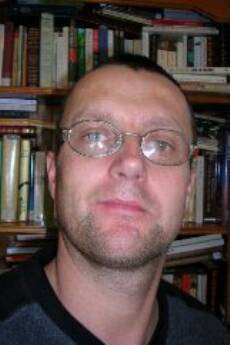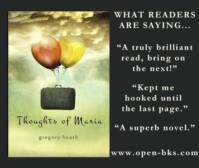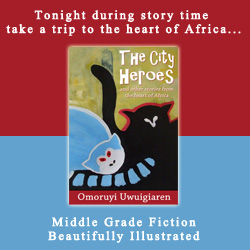Article
The value of fiction in exploring and representing the Holocaust:
Bernard Schlink's The Reader
(First appeared in issue 39 of ‘Tears in the Fence’.)
Gregory Heath
Fiction, as a method of examining the Holocaust, is often viewed with suspicion. Ernst Von Alphen, in Caught by history: Holocaust effects in contemporary art and literature, states that most scholars and critics involved in Holocaust studies are of the opinion, on moral grounds, that the modes of representation most appropriate to the event are those that do not attempt to fictionalise history, namely testimonies, autobiographical accounts and documentaries.
‘Representations of the Holocaust (should) be as accurate and faithful as possible
to the facts and conditions of the event, without change or manipulation for any reason -
artistic reasons included.’
This position is understandable, given the unique status of the Holocaust, with its inestimable personal and political consequences. However, there are those who question the ability of purely factual representations to provide genuinely enlightening insights into what the Holocaust meant, and means. Saul Friedlander (again cited in Von Alphen) suggests that the historian’s approach can in fact have a negative effect, by encouraging through its language a particular, detached, response from the reader. The reader is asked to merely survey the evidence placed before them, rather than engaging with it on a more meaningful level. According to Friedlander, this distancing:
‘....neutralises the whole discussion and suddenly places each one of us, before we have had time to take hold of ourselves, in a situation not unrelated to the detached position of an administrator of extermination. Interest is fixed on an administrative process.....and that’s all.’
He goes on to state that this effect, which sees factual portrayals of the Holocaust give rise to a ‘Holocaust performance’ on the part of the reader, is unavoidable for the contemporary historian:
‘The historian cannot work in any other way, and historical studies have to be pursued along the accepted lines. The events described are what is unusual, not the historian’s work. We have reached the limits of our means of expression.’
Friedlander’s point (though framed in somewhat extreme terms) is valid. However, the specific language of history aside, I would suggest that a sense of detachment in the reader when presented with the bare facts of the Holocaust is in any case almost inevitable. The Holocaust, as an event, is overwhelming and merely thinking about the details of what happened during that period is enough in itself to induce a feeling of numbness, an inability to fully comprehend the horror. Arguably, this feeling (this non-feeling) is a healthy, necessary, psychological defence, but it is also a bar to a genuine, personally relevant, appreciation of how the Holocaust came to happen, and of the people involved in it.
In the light of this very real barrier to a personal understanding I would argue that fiction does have a distinct and valuable contribution to make (alongside other artistic modes of representation and, of course, the documentary methods mentioned above) to a more complete understanding of the Holocaust, and I believe that Schlink’s The Reader is a great example of this in practice.
I was, and am, hugely impressed by Schlink’s novel. It is an extremely sophisticated piece of work, written with a deceptive simplicity, and one of the things it does so well is to bring Holocaust issues into the domain of the personal. We are given an insight into many of the effects of the Holocaust, for the perpetrators, the victims, and the German nation as a whole, through the emotions of its narrator (emotions which - as fellow human beings - we can strongly identify with).
The Reader tells the story of a teenage schoolboy, Michael, who falls in love with Hanna, an older woman. Hanna is a mysterious, complex, erotic individual, and Schlink dedicates a considerable amount of time (the first third of the novel) to telling the story of the love affair between her and Michael.
Hanna disappears one day without warning, and after this desertion Michael continues with his education and goes on to university to study law, developing a particular interest in crimes of the Holocaust. He is a spectator at a court trial when he next sees his ex-lover. Hanna is a defendant, one of five female guards jointly accused of allowing several hundred women prisoners (being marched between camps) to perish in a burning church, refusing to unlock the doors and set them free.
Hanna cannot read or write, and is desperate to hide this ‘shameful’ fact from the world (it was actually this fear of being found out that led her to become a camp guard in the first place; she took the job - without necessarily knowing what it would entail - to avoid being exposed as illiterate by impending changes in her previous employment.) Her ‘successful’ attempts to maintain her secret throughout the trial damage her case badly and she becomes a scapegoat, taking the majority of the blame for the joint crimes of the five guards. She is sent to prison for life.
Whilst in prison, and with Michael’s support, Hanna learns to read and write. She also researches the Holocaust, attempting to come to terms with her role in it. Then, after many years - and the day before she is due to be released - she hangs herself.
Naturally, this chain of events has a profound effect on Michael, and it is through his subsequent frank examinations of his own emotions that we are given insights into many of the dynamics that allowed the Holocaust to happen, as Schlink draws numerous parallels between the motivations and feelings of his main character and the motivations and feelings of those involved in the Holocaust.
Schlink does not pretend that the ‘crimes’ Michael finds himself committing can be equated to crimes of the Holocaust, but that is not the point he is making. The point is rather that the same basic potentials - for callousness, for emotional disassociation, for a denial of responsibility (or a denial of reality itself) - can be seen to exist, in extraordinary circumstances, in even the most intelligent, sensitive individual. We accept this as a truth, because we believe in Michael as a convincing, moral, character, and he is seen, at certain points in the narrative, to display these traits. After Hanna disappears, for example, Michael adopts his own emotional defences, deciding:
....never to let myself be humiliated or humiliate myself after Hanna, never to take guilt upon myself or feel guilty.
He puts on a hard mask, and he wears it well, adopting ‘a posture of arrogant superiority’. Looking back, he recalls that, ‘Everything was easy; nothing weighed heavily’, and that this sense of a total lack of responsibility extended even towards the feelings of the most dearly loved people in his life:
Not long after Hanna left the city, Sophie was diagnosed with tuberculosis. She spent three years in a sanitarium, returning just as I went to university. She felt lonely, and sought out contact with her old friends. It wasn’t hard for me to find a way into her heart. After we slept together, she realized I wasn’t interested in her; in tears, she asked, ‘What’s happened to you, what’s happened to you?’ I remember my grandfather during one of my last visits before his death; he wanted to bless me, and I told him I didn’t believe in any of that and didn’t want it. It is hard for me to imagine that I felt good about behaving like that. I also remember that the smallest gesture of affection would bring a lump to my throat, whether it was directed at me or at someone else. Somehow all it took was a scene in a film. This juxtaposition of callousness and extreme sensitivity seemed suspicious even to me.
This juxtaposition of callousness and sensitivity is indeed suspicious and, according to Primo Levi, who survived Auschwitz, it mirrors the characteristics of some of the Holocaust’s most hardened perpetrators. In his collection of Holocaust essays, The Drowned and the Saved, Levi recounts the story of a young girl who somehow survives the gas chamber and is found alive by the men sorting through the resultant tangle of corpses. Suddenly the men, for whom the bringing of death to anonymous masses has become a mundane trade, are faced with a person who, through her inexplicable survival of the chamber (the only recorded case of this ever occurring) and the subsequent questioning, has acquired an identity, a character, a reality. The girl is hidden, warmed, and given soup; a doctor is called, who revives her with an injection and declares that the gas has done her no serious harm.
The girl is hidden, warmed, and given soup; a doctor is called, who revives her with an injection and declares that the gas has done her no serious harm.
Then an SS man named Muhler arrives, who Levi describes as ‘not a compassionate person; his daily ration of slaughter was studded with arbitrary and capricious acts, marked by his inventions of refined cruelty.’ Muhler hesitates; it appears that even for him the situation is very uncomfortable. Eventually he decides that the girl must die, for political reasons (alive, she is a potential witness). But Muhler does not (and Levi attaches significance to this) commit the act himself. He instructs an underling to kill the girl.
Levi relates this event as an illustration of the fact that, ‘Compassion and brutality can coexist in the same individual and in the same moment, despite all logic’, which describes more or less the feeling that Michael refers to above.
Schlink draws many other subtle parallels in The Reader. When Michael first sees Hanna in court, he is extremely unnerved to hear that she may not be held in a cell during the course of the trial:
I was jolted. I realized that I had assumed it was both natural and right that Hanna should be in custody. Not because of the charges, the gravity of the allegations, or the force of the evidence, of which I had no real knowledge, but because in a cell she was out of my world....
What Schlink demonstrates here is Michael’s unwillingness to confront the reality of events in a personally meaningful way. Whilst Hanna is locked in a cell Michael can effectively maintain an emotional dissociation. Hanna in a cell becomes abstract, like the anonymous masses sent to the chambers; Hanna knocking on Michael’s door becomes all too real, like the girl who survived the gas.
As it happens, Hanna is kept in detention and Michael is able - at least at first - to successfully anaesthetise himself against any feelings of inward involvement. Although he appears in court every single day, and follows the trial in minute detail, he denies the overriding personal reality of the situation and is able to:
....see Hanna as if it was someone else who had loved and desired her, someone I knew well but who wasn’t me.
Although the situation itself is very different, it is not at all difficult to equate Michael’s self-serving denial of personal involvement on this occasion to that of the Holocaust’s perpetrators, and to that of the countless thousands of people (Germans and others) who stood by as the Holocaust happened.
‘In that moment in which they felt that they were again becoming men (that is, responsible), the sorrows of men returned....’
Levi goes on to state that (like Hanna) many of the camps’ prisoners actually committed suicide at the very point of ‘freedom’.
‘None of you held back, you all acted together?’
Later on, in relation to the main charge of letting the prisoners die in the church instead of freeing them, Hanna repeats her question to the judge: ‘What would you have done?’ This time she gets no answer at all; he merely shakes his head in silence.
....a conflict between two equally compelling duties that required action.... That is how one could imagine what Hanna was describing, but nobody was willing to look at it in such terms.
Once again, we have a situation here that Levi recognises. Although written in reference to collaborators from amongst the prisoner population, Levi’s following words could not but apply to Hanna’s predicament:
....it is necessary however to declare that before such human cases it is imprudent to issue a moral judgement. It must be clear that the greatest responsibility lies with the system.... It is a judgement that we would like to entrust only to those who found themselves in similar circumstances, and had the possibility to test on themselves what it means to act in a state of coercion.... I know of no human tribunal to which one could delegate the judgement.
It is a judgement that we would like to entrust only to those who found themselves in similar circumstances, and had the possibility to test on themselves what it means to act in a state of coercion.... I know of no human tribunal to which one could delegate the judgement.
Another advantage of Schlink’s ‘fictional’ approach towards the Holocaust lies in the fact that, unlike many other modes of investigation, fiction is allowed to be uncertain. If we read an academic analysis of the Holocaust, we are looking for answers: it is the academic’s function to attempt to provide them. But these answers, at best, will be partial, and they will always lead to more questions. Schlink acknowledges this in The Reader, which contains a number of metaphorical references to partial enlightenment (it is no coincidence that the courtroom of Hanna’s trial is windowed with ‘milky glass’).
The Literary Review actually praises Schlink’s work (in the sleeve notes) for ‘achieving enormous moral force in the strength of its uncertainty’. It seems odd at first to praise a book for its uncertainty, but in the case of this novel, in which the philosophical questions posed are so huge, it makes perfect sense to do so. One could argue, in fact, that to approach the Holocaust with anything other than uncertainty is a failing.
Schlink also specifically acknowledges the central basic problem involved in coming to terms with the Holocaust - that understanding and condemnation are ultimately not compatible:
I wanted simultaneously to understand Hanna’s crime and to condemn it. But it was too terrible for that. When I tried to understand it, I had the feeling I was failing to condemn it as it must be condemned. When I condemned it as it must be condemned, there was no room for understanding. But even as I wanted to understand Hanna, failing to understand her meant betraying her all over again. I could not resolve this. I wanted to pose myself both tasks - understanding and condemnation. But it was impossible to do both.
What we are faced with here is an (unavoidable) failure to reconcile a rational understanding of events with an emotional understanding of them. This relates very strongly, I would argue, to the position that Levi found himself in - as a survivor of the camps - whilst writing The Drowned And The Saved. Levi makes it clear that he is not in the business of forgiveness; Muhler, the sadistic SS man mentioned earlier, was later tried and hanged for his crimes and Levi states that this was a satisfactory outcome. However, in the very same paragraph he asserts that, in a different environment, Muhler would probably have behaved as any other common man, and these attempts to understand his motivations inevitably place one foot on the path towards forgiveness.
Like Schlink’s narrator, Levi appears to be setting himself the task of simultaneous condemnation and understanding, and one cannot help but speculate if his sudden, violent suicide was the ultimate expression of the impossibility of this task. After all, his objective, detached, dispassionate assessment of the act of suicide as ‘....an act of man and not of the animal; it is a meditated act, a non-instinctive, unnatural choice....’ does not tally well with the apparently brainstorm-like act of his own death. A chemist by trade, with any number of ‘meditated’ options open to him, Levi threw himself down a stairwell.
Amongst the substantial body of work he left behind was a poem called Pliny, which can be thought of as a comment on the difficulty of approaching the subject of the Holocaust. ‘Don’t hold me back friends,’ he wrote, ‘let me set out… / I want to observe at close hand that dark cloud.’ I think Schlink’s The Reader helps us to observe that dark cloud, too. If you haven’t read it, I sincerely recommend you do so.
References
Levi, Primo (1986), The Drowned and the Saved. Abacus. London.
Schlink, Bernhard (1997), The Reader. (Translated by C. B. Janeway). Phoenix. London.
Von Alphen, Ernst (1997), Caught by history: Holocaust effects in contemporary art and literature. S.U.P. Minnesota.
© Moronic Ox Literary Journal - Escape Media Publishers / Open Books
Moronic Ox Literary and Cultural Journal - Escape Media Publishers / Open Books Advertise your book, CD, or cause in the 'Ox'
Novel Excerpts, Short Stories, Poetry, Multimedia, Current Affairs, Book Reviews, Photo Essays, Visual Arts Submissions
Gregory Heath is a British poet, short story writer and novelist.
Born in a Derbyshire hamlet, Woodhouses, he is the author of the novels The Entire Animal (Waywiser Press) and Thoughts of Maria (Open Books).
Gregory Heath was born in Derbyshire in 1967. He is widely published in the small press; his poetry, short stories and essays having appeared in magazines such as Tears in the Fence, Iota, and Poetic Licence. Staple have published him on a number of occasions and featured him in their Alt-gen collection showcasing the best small press writers of the last decade.
Like much of Heath's work The Entire Animal takes the reader inside the mind of someone for whom communication with others
is not easy and we experience the awkwardness and effects of this shortcoming. Laurence Phelan writes in The Independent that
the novel is about "a man at last coming to terms with the loss of
his mother at an impressionable age, and belatedly learning how to let other people into his life and form meaningful relationships with them."
The Boy and His Animals, a book
of 26 short poems, was published in 2008. They dealt with psychological themes in a very unusual way. The collection is dedicated to the memory of Stevie Smith, an English poet who once wrote, 'I'll have your heart, if not by gift by knife...'
Rhiannon Jenkins Tsang reviews Thoughts of Maria by Gregory Heath.
"This is a wonderful tale of loneliness, and Western society’s obsession with financial success contrasted with the naked poverty of parts of the developing world. It is subtly crafted.
After Gerry a middle aged English surveyor divorced, he decides to remarry. As he brings the young Maria back from the Philippines as a “mail order bride” tragedy looms. His drug addict son develops sexual fantasies about Maria while his ex wife Rachel plots revenge.
Heath’s accessible prose disguises a real gift for creating dynamic characters out of what could so easily have turned into a clichéd plot.
The book is composed of short chapters written in the first person, alternating between the points of view of the four main characters. Thus a compelling narrative is created out of the tensions between the various confessions of the characters, of which the omniscient reader, alone, is aware. I could not put the book down
Heath is a gentle wordsmith, who beautifully conveys complex and powerful emotions with simple language. His descriptions of life on a Manila rubbish dump are particularly vivid.
The intervention of the fifth voice of Gerry’s father in the latter half of the novel upset the balance of the narrative somewhat for me. Perhaps it worked as a kind of deus ex machine providing an optimistic counterpoint to a potentially bleak ending. But I was not convinced by it.
Thoughts of Maria would make an excellent radio play. It is deceptively simple, and equally powerful. The characters never say what they really feel. Perhaps there is something of us all in this story. It raises questions about the way family and friends often react when someone steps outside the box to which we they imagine we have been assigned. This is a thought provoking and rewarding read."
Rhiannon Jenkins Tsang,
25th March 2013
About the Book...
Gerry Thorley’s wife Rachel has left him for another man. His son Callum, who works for a PR company by day and deals drugs at night, hardly ever visits him. Now Gerry, divorced and approaching fifty, wants a second chance at love.
On the other side of the world, on the infamous Payatas dump in Manila, nineteen-year-old Maria and her family live a life of abject poverty and desperation. Picking through the filth, they earn just enough to stay alive. There seems no chance for change, until one day a young man appears with a proposition.
As Gerry combs web site after web site searching for the perfect mail-order bride, Maria and her family come to terms with the possibility that she might marry a foreigner to escape the miserable cycle of poverty in which they live. But he must be just the right man, a kind, respectful man, and a man with the means to give her a better life.
Will Maria’s future husband turn out to be an Englishman more than twice her age? Will Gerry’s new wife satisfy his needs for companionship and warmth? And what might his ex-wife and son think of Gerry’s new bride?
When the marriage is finally arranged and Maria returns with Gerry to England to start their life together, neither expects perfect marital bliss but both are willing to patiently cultivate a mutually satisfying relationship. But trouble is lurking just around the corner as Gerry’s son Callum feeds the fires of an escalating sexual obsession with his father’s new bride, and Rachel resolves to see the marriage fail, and Maria back where she belongs in the Philippines.








